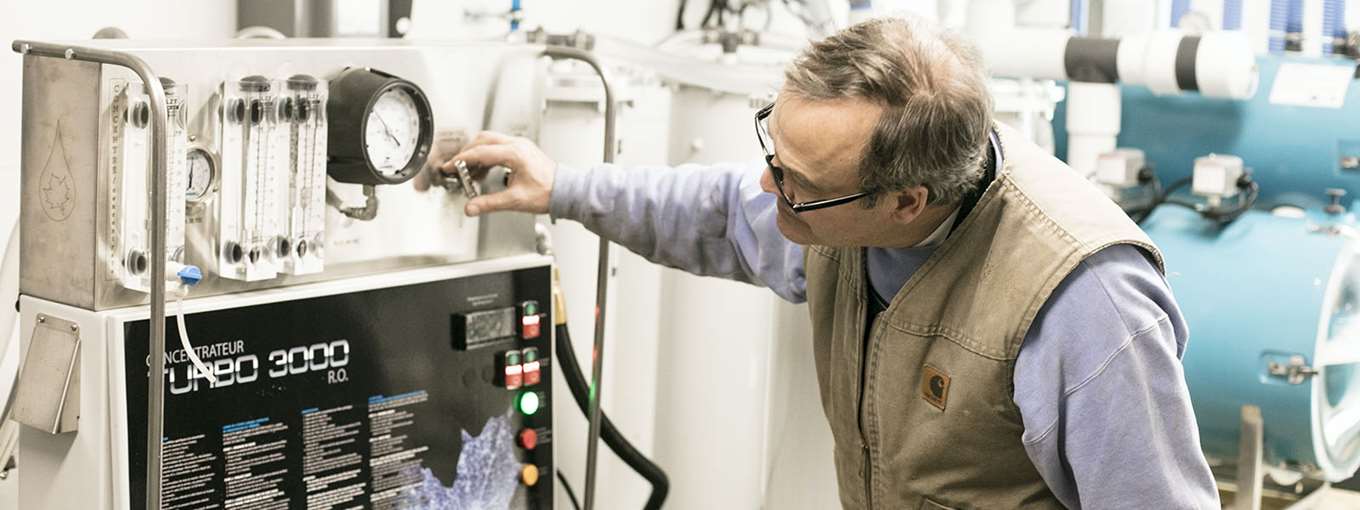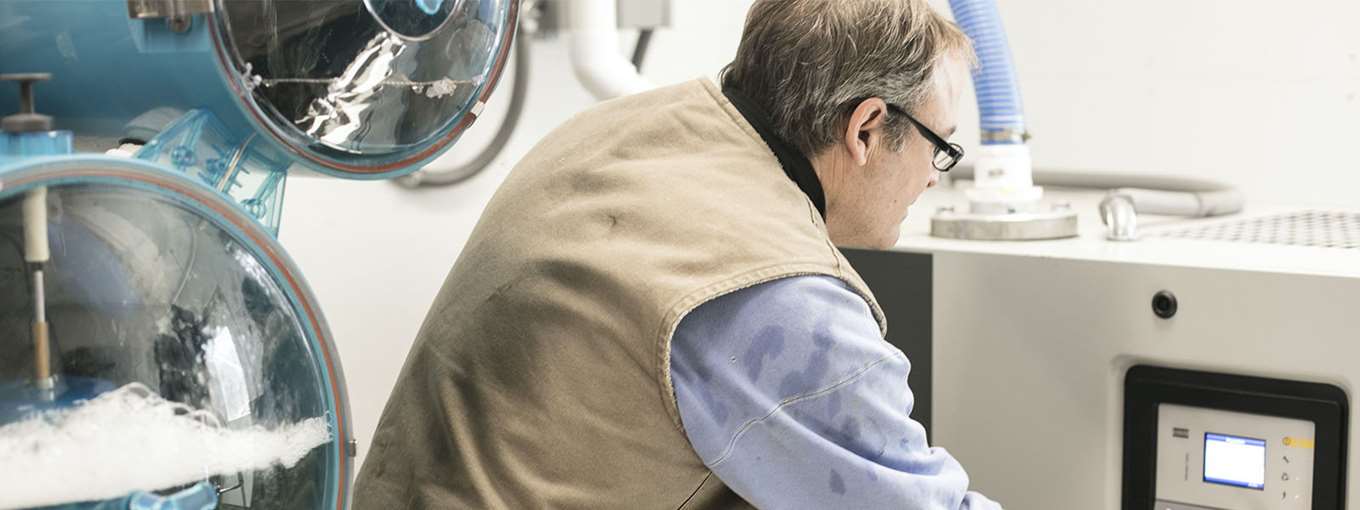Vermont maple sugar makers tap energy savings
Sugaring season is in full swing in Vermont. As local sugar makers begin tapping trees and firing up their evaporators, I start to think about all the energy that goes into keeping the sap flowing and boiling.
With over 1500 maple sugar makers in the state, Vermont is the largest producer of maple syrup in the U.S. Last year nearly two million gallons of maple syrup were produced in Vermont resulting in more than $300 million in sales. The amount of energy used by a maple sugar maker depends on the size of their operation, the equipment they’re using, and the length of the season. More traditional operations can use a whole cord of wood to make 25 gallons of syrup. And a basic oil-fired evaporator could require up to four gallons of oil to make one gallon of syrup. At $2.00/gallon of oil that adds up to over $8 of oil in one gallon of syrup.
These fuel costs are generally what people think about when they consider how energy is used in a sugar house. But over the years changes in the industry have more and more sugar makers relying on electricity to make maple syrup. Technologies such as Reverse Osmosis systems (ROs) and vacuum pumps have been added to many sugaring operations. This equipment can reduce labor hours and greenhouse gas emissions produced during sugar making. But these technologies can also cause electric bills to rise.
JJ Vandette, Efficiency Vermont’s Agriculture Program Manager, gave me some insight into how changes in the maple industry are serving the needs of sugar makers throughout the state. “The sugaring seasons are becoming less and less predictable, starting earlier and lasting for shorter periods of time. Sugar makers need new tools and methods to adapt to these conditions and that’s where technology and efficiency can play a vital role.”
Efficiency Vermont has been following innovations in the maple industry to make sure the most energy efficient technologies are available. Through technical assistance and financial support we are helping our local maple producers stay competitive in a rapidly changing, climate-dependent business.
Two of the main technologies that we are providing incentives on are ROs and super-efficient rotary screw vacuum pumps. Over the past two years Efficiency Vermont has enabled 94 smaller sugar makers upgrade their sugar house with the purchase their first RO. These systems are a big fuel saver. Running on a relatively small amount of electric energy, this technology can remove up to 95 percent of the water in the sap before it is boiled down to syrup. ROs can cut boiling time up to 75 percent, which means less labor hours and fewer late nights in the sugar house.
Adding an RO to a sugaring operation can increase electric bills, but with an energy efficient system and the associated fuel savings they are a smart investment. We’re ensuring that the most efficient systems are available at a discounted cost to Vermonters. On average, participants in our RO program are saving more than 8 cords of wood or 1000 gallons of fuel oil per year depending on their type of evaporator.
Rotary Screw Vacuum Pumps are a state-of-the-art technology that is new to Vermont. The days of buckets on trees are long gone for all but the smallest sugaring operations. Tubing throughout a sugar bush is now commonplace and vacuum pumps are used in most operations to suck sap from the trees 24 hours per day during the season. Rotary screw vacuum pumps are a game changer. This technology can replace multiple large vacuum pumps with one unit handling the same vacuum levels. Rotary screw vacuum pumps come equipped with controls that adjusts and respond to the flow of sap, sensing when to ramp down because cold temperatures are causing the sap to slow, and when to ramp up as flow increases with warmer weather. These units are quieter, runs less often, and save energy in the process.
Efficiency Vermont has incentives to help cover the upfront cost of rotary screw vacuum pumps. With this financial assistance and a reduced energy bill this efficiency upgrade can pay for itself in a little less than 10 years. When you factor in the increase in sap production, there is a potential for even faster financial returns.
Incorporating variable frequency drives (VFDs) can be a good alternative for sugar makers who aren’t quite ready to invest in a rotary screw vacuum pump. VFDs adjust the motor speed on a traditional vacuum pump according to the load on the pump. Standalone VFDs can save the average sugar maker more than $250 per season.
One of the first Rotary Screw Vacuum Pumps to be installed in Vermont lives at Scrag Mountain Sugar House in Waitsfield. Owned and operated by Dave Gavett, this sugar house has over 13,000 taps. Prior to making efficiency improvements in 2016, Scrag Mountain was using a lot of electricity and fuel per gallon of syrup it produced Dave’s desire to manage his energy costs, reduce labor hours, minimize his carbon footprint, and be ready for warmer and shorter sugaring seasons, prompted him to create the most efficient sugar house possible.
Over the past year Dave has installed a new wood-fired gasification arch, a state-of-the-art RO system, and, through a partnership with Efficiency Vermont, the rotary screw vacuum pump. The results have been very encouraging. Last year, Scrag Mountain used 13 cords of wood to produce 600 gallons of syrup. This year, they expect that the same amount of wood will be enough to make over twice that amount of syrup. Some of this increase can be attributed to the addition of the rotary screw vacuum pump. Efficiency Vermont’s incentive covered 18% of the cost of the new pump and Scrag Mountain is expected to save approximately $1,500 on energy costs annually as a result.
Scrag Mountain is one of nearly 250 Vermont sugar makers working with us to make smart investments in energy efficiency. Vermont sugar makers’ energy efficiency upgrades over the past decade will result in nearly five million dollars in savings over the lifetime of the improvements. These investments are good for business, good for the environment, and good for our local economy. We’re proud to partner with Vermont maple sugar makers to help the syrup industry adapt, grow, and thrive.

